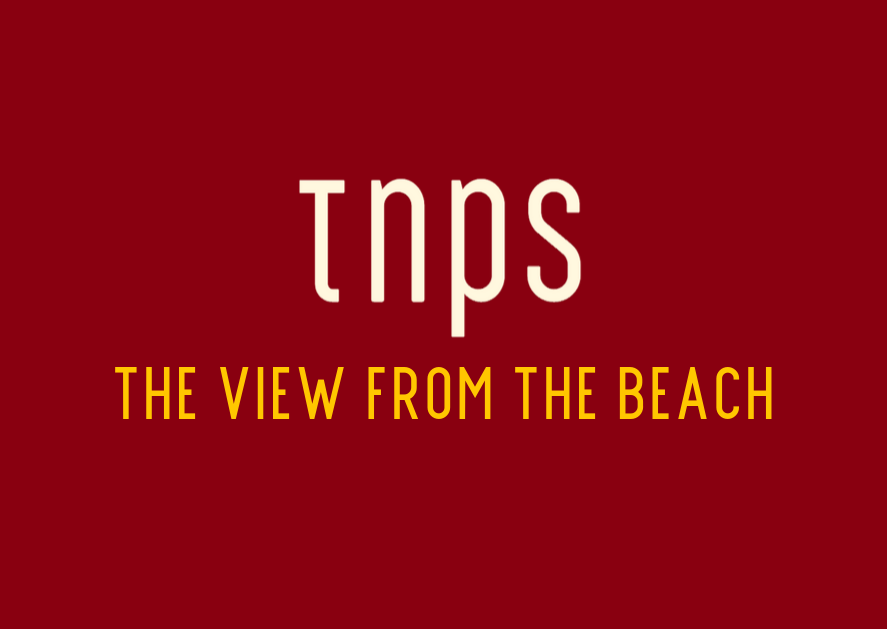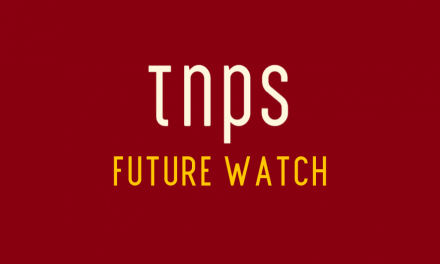Just as AI is not to be afforded copyright protection by human law, nor is it to be afforded the assumption of innocence until proven guilty in the court of human opinion. At least, not by writers who think their job is above the law of Darwinian natural selection and survival of the fittest.
Something for everybody in James Folta’s latest post “Publishers are already using far to much AI”, responding to a recent report by Bertelsmann that painted a rosy picture of Gen AI’s impact on the world.
If you are in the “AI = evil incarnate” camp, you’ll love everything Folta has to say about “evangelist” Bertelsmann’s “fawning and unskeptical” report on Generative-AI.
And Amazon gets a bashing as well – “Why is it that a company that has more money than God still has a Geocities-ass website?” – so its two for the price of one.
What’s not to like!
Well, since you ask, this:
“If you think a poem made like a hot dog of stolen words sounds interesting, that’s fine, but no one should lose their job over that experiment. This entire report makes clear to me that the powers that be see AI as a way to make more money by squeezing down their cost of labor.“
Stolen words? Just as AI is not to be afforded copyright protection by human law, nor is it to be afforded the assumption of innocence until proven guilty in the court of human opinion.
At least, not by writers who think their job is above the law of Darwinian natural selection and survival of the fittest.
“The powers that be see AI as a way to make more money by squeezing down their cost of labor”?
Yep, those nasty Nazis at Bertelsmann are still up to their old tricks. (N.B. it is Folta who revives the Nazi spectre – “a giant German media conglomerate with a grim history that includes slave labor and Napster.“)
But even leaving aside the rather distasteful equating of illegal file sharing with Nazi slave labour, Isn’t that exactly what pretty much every company aspires to do – finding ways to “make more money by squeezing down their cost of labor”? Since when did businesses become employment charities?
And most big corporations that have been around since the last century (or longer) have dark histories they would prefer to leave behind.
It’s always amusing to see writers badmouthing tech using tech platforms that, according to their own logic, must have put people out of work to be successful enough to be worth being on. So while Folta is by trade a satirist and comedian, and we should allow some slack with commentary intended to induce a chortle at the expense of factuality, the overarch of the Folta piece is that AI is the enemy of civilisation as we know it.
But, says Folta, “the conversation is already turning against this tech.”
It is? So what’s the problem, Jim?
Folta explains, “AI still can’t make anything that’s very good, it’s destroying Google’s search engine, and workers are pushing back.”
Oh dear! Google’s search engine is being destroyed by AI? Yeah, it’s always the small weak companies that get hit the hardest. And of course Google has absolutely nothing to do with Bard, or Gemini, or whatever it’s name is this week. (Memo to Google, Bard was actually a pretty shit name to start with. Good luck with Gemini!)
Not so funny is Folta’s choice of a deadly serious article on Wired about how African workers are being used to police content on First World western online platforms (for less than $2 an hour), to slam AI again. Because of course “murder and beheadings, child abuse and rape, pornography and bestiality” didn’t exist online until Chat-GPT appeared, and western companies had paid African workers a fair wage before AI came along.
To be fair, the Wired article spans wider exploitations of African workers, and Folta is keen to be on the side of the proletariat. Workers of the world unite! We have nothing to lose but our chAIns. Yeah, that Karl Marx and Friedrich Engels boy-band were sure prescient!
Which is why I admire James Folta so much.
He’s too modest to say so, but I have it on good authority Folta still writes his scripts on parchment with a quill pen (finest goose feathers for regular work, an exquisite peacock feather for his best stuff).
A typewriter? But think of all those typewriter factory workers who need their jobs! And think of the the postmen, and the envelope makers that rely on people like Folta to keep them in employment.
Every winter, Folta calls the coalman to deliver coal so he can keep warm as he scrapes his quill across the goatskin (gotta keep the goat-herders in the style they are accustomed to!). And the coal fire also keeps the chimney sweep in business, although the chimney boy is now sent to school instead of up the chimney. An old school, that is (easy to find in Publisherland), where they still use chalk and blackboards and the only thing mobile about the school phone is the way the dial spins around.
Folta does podcasts nowadays, because that’s the only thing that survived the video apocalypse. As we know, video (back when it was just called telly) killed the radio star, the movies, theatre, bookshops, reading and conversation, just as AI is doing now.
So it’s the act of podcasting, along with actual writing for LitHub, that keeps Folta sane as he juggles the guilt of all those lumberjacks, paper mill workers and printers that aren’t employed in his podcast studio or on the LitHub website.
Folta loses sleep every night worrying about those unemployed stable boys, coal-miners, coal merchants, candlestick-makers, sailing ship crews, parchment makers, quill makers, camera film makers, postmen, milkmen, shop assistants and shop-owners, mangle-makers, thatchers, wheelwrights and chimney sweeps that were left behind by that Nazi – sorry, nasty thing we call progress.
But we are writers! (Or in some branch of the publishing industry that needs to pretend writers matter). We are special.
And so we are. Just as coalminers were special. And farm labourers guiding an ox and plough were special. And tweezer-holding typesetters were special. And…
Folta says, “AI still can’t make anything that’s very good.”
Which is of course why the Japanese laureate winning the country’s most prestigious literary prize, with a book part-written by AI, is top of the AI Luddite’s Look Away Now list.

Rie Kudan, as Folta won’t know, collected the Akutagawa Prize earlier this year for a novel that was lauded by a judge for being “almost flawless” and “universally enjoyable.“
Only after the event did she declare that about 5% of the novel quoted “verbatim sentences generated by AI.“
Beware the future. It’s happening right now. And denial is futile.
Bu if you do share my perspective and find James Folta erring on the Luddite side, don’t let that deter you from checking out his regular work, which is mostly spot on.
This post first appeared in the TNPS LinkedIn newsletter.





